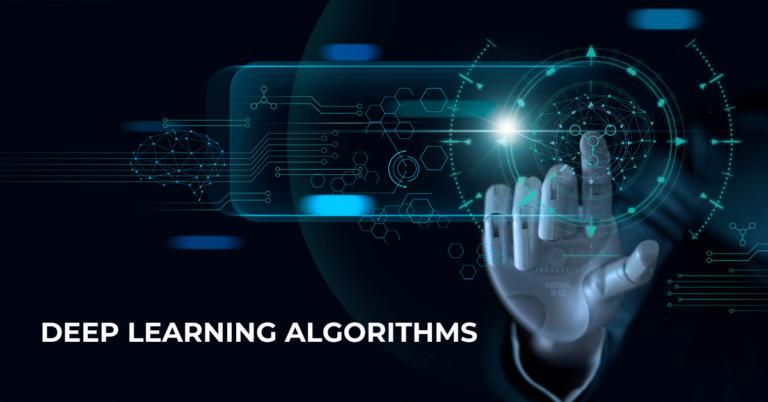
AI and Machine Learning Online Courses
Artificial Intelligence and Machine Learning are revolutionizing industries by enabling smarter decision-making and enhancing efficiency. These technologies are pivotal in shaping the future, from automating tasks to deriving insights from big data. With its expanding applications, the demand for skilled professionals is rising, offering you the opportunity to join this transformative movement.
17.15%
CAGR from 2024-2030, US$528 billion market size anticipated in the AI and ML market
$407 billion
is the expected AI market value by 2027, soaring 36.2% since 2022
30%
of IT experts utilize AI for efficiency
83%
of firms prioritize AI integration
Gain hands-on experience and launch a new career with
Professional Certificate Programs
By Universities
Postgraduate Diploma Programs
By Universities
AI and Machine Learning by Emeritus in Collaboration with Universities
The Emeritus Impact
Outcome-Based Learning
Courses are curated and designed to meet specific learning outcomes to boost career growth.
Develop Future-Ready Skills
Our programs help learners build skills they can apply immediately to their jobs. Nine out of ten Emeritus learners reported a positive impact on their careers.
Immersive Learning Experience
Instructor-led courses and cohort-based learning experiences provide one of the highest completion rates in the edtech industry, ie, over 80%.
Source: Emeritus Impact Survey, 2023
500K
Learners Globally
80+
Universities Worldwide
700+
Cutting-Edge Programs
Accelerate Your Career With Leading AI and Machine Learning Programs
Upskill now from the world's best universities
Guide to AI and Machine Learning
Concepts: AI and Machine Learning
The digital landscape is evolving, and AI is at the forefront. Eighty three percent of companies prioritize machine learning and artificial intelligence courses. Artificial intelligence courses offer comprehensive training in machine learning, including machine learning courses and artificial intelligence certification programs. Enhance your expertise with top-tier programs in deep learning and natural language processing, exclusively provided by Emeritus in collaboration with leading universities. Whether you’re a seasoned techie or a curious newcomer, these artificial intelligence courses have the perfect launchpad for your ambitions.
AI and Machine Learning Related Videos
FAQ on AI and Machine Learning
What are the job roles for AI and ML aspirants?1
AI and ML aspirants can pursue several job roles that involve the development and deployment of artificial intelligence and machine learning algorithms. These roles include data scientist, AI developer, machine learning engineer, AI researcher, and business intelligence developer. Furthermore, according to insights from Job search platforms like Indeed and Turing, there is a significant demand for machine learning engineers and AI developers in various fields such as finance, health, education, and more. Additionally, professionals can also take up roles in areas such as Natural Language Processing (NLP), computer vision, and robotics.
What are the responsibilities of AI and ML professionals?2
The responsibilities of AI professionals typically include:
- Evaluate AI systems for their intended purpose
- Creation and deployment of AI algorithms. Write essential code for machine functionality
- Building data science infrastructure. Set up and manage AI infrastructure.
- Collect and analyze data using ML algorithms to identify shortcomings
- Natural Language Processing (NLP). Enable accurate and swift understanding of human speech
- Build AI systems for surveillance and monitoring purposes
The responsibilities of ML professionals can include the following:
- Research, modify, and apply data science and data analytics prototypes
- Create and construct methods and plans for machine learning
- Employ test findings for statistical analysis and model improvement
- Search for readily available training datasets online
- Train and retrain ML systems and models as needed
- Improve and expand existing ML frameworks and libraries
- Develop machine learning applications based on client/customer requirements
- Investigate, test, and implement suitable ML tools and algorithms.
- Evaluate application cases and rank ML algorithms based on success potential
- Enhance data comprehension through exploration, visualization, and identifying distribution discrepancies affecting model effectiveness in practical scenarios
What do you need to launch a career in AI and ML?3
- A Bachelor’s degree in mathematics, computer science, or a related field will provide a stable foundation for a career in AI and ML.
- A Master’s or Doctoral degree might further help in administrative and supervisory roles.
- A basic understanding of mathematics, physics, robotics, and popular coding languages can elevate your skills further.
- As AI and ML continue to change and develop, so will the knowledge around it. To keep up with the transformations in the industry, Emeritus offers an array of courses that will suit your career requirements and upgrade your knowledge with the latest advancements in the industry. Emeritus online courses are created to ensure continuity in your knowledge so that you do not fall behind in a rapidly changing industry.
What is the average salary of AI and ML professionals?4
The average salary of AI and ML professionals differs depending on their work experience, qualifications, company, and location. According to Indeed, the average salary for jobs in machine learning in the U.S. is $155,480 per year. Meanwhile, according to Glassdoor, the average annual salary of AI professionals in the U.S. is $105,074.
To increase their likelihood of obtaining a well-paid job, professionals must improve their skills and pursue further education. Therefore, an option is to sign on with Emeritus, which has partnered with leading global institutions to provide a range of online courses focused on AI and ML. These courses are designed to equip them with industry-relevant skills, thereby enhancing their prospects of securing a financially lucrative position.
What is the career path for artificial intelligence aspirants?5
AI and ML aspirants have a plethora of career paths to explore in this rapidly advancing field. Key roles include Machine Learning Engineer, Data Scientist, AI Researcher, and AI Developer, as well as specialized positions in NLP, Computer Vision, and Robotics.
To begin with, these roles demand a strong foundation in computer science, mathematics, and statistics, along with proficiency in programming languages like Python and R. Practical data handling, preprocessing, and experience with machine learning frameworks are crucial.
Formal education, such as university programs or industry certifications, can provide the necessary knowledge and credentials. Additionally, gaining practical experience through projects, competitions, and open-source contributions is vital.
Being up-to-date with the latest advancements, continuous learning, and keeping a pulse on the evolving AI landscape is essential to excel in this field. With determination, continuous skill development, and the right opportunities, skilled AI and ML professionals can forge a successful and rewarding career path.


























































